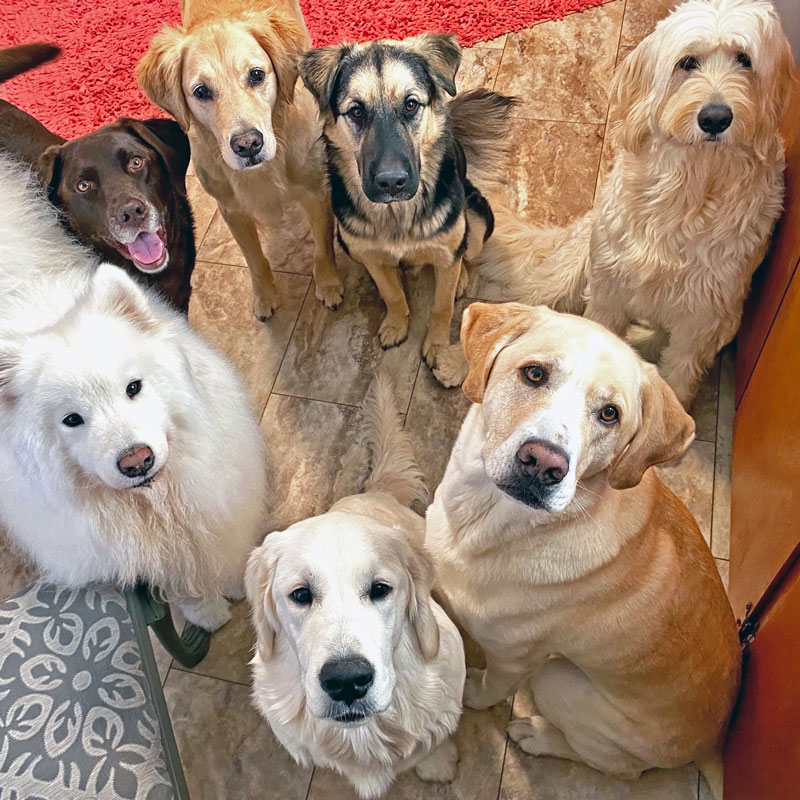Evaluation Process
Every evaluation rests on the policy that our pack members MUST be friendly toward one another. Our pack members eat, sleep, and play together. We do not separate them.
A dog that does not want to be with other dogs is not a good fit.
Biddable is the trait we seek most when evaluating potential pack members. This means the dog is ready to accept and follow instructions. While we love all dogs, we recognize that some breeds are more independent than biddable. We can maintain our business license on the condition that there are no complaints from our neighbors. For that reason, we cannot care for dogs that bark excessively. If a dog is biddable, we can teach them to not bark.
Although there are exceptions, our experience provides us with good evidence regarding which breeds do well here, and which ones do not.
Golden Retrievers, Labrador Retrievers, and Retrievers mixed with other breeds are the best fit here. They are generally friendly toward other dogs and eager to do our bidding.
Hounds often work in packs and generally enjoy pack life. However, they can be stubbornly vocal and therefore are not always a good fit.
Shepherds, Heelers, Corgis and other herding dogs usually want to be in charge and direct the movements of the other dogs, which creates tension in the pack.
Most Terrier breeds were initially bred to kill their prey. They can be intense and relentless when their natural instincts kick in. Terriers are generally not a good fit for us.
Small breed dogs are at risk for serious injury if they get stepped on or knocked over. We occasionally accept small females if they have good pack manners and are not physically fragile. Small male dogs try to assert themselves among larger males. It can appear as aggression and/or marking with urine. We do not host small male dogs.
Fail
- Snaps or snarls at other dogs
- Barks excessively
- Does not share toys and becomes possessive of them
- Cannot be touched while eating
- Marks inside our house (males)
- Exhibits anxiety; doesn’t eat meals or sleep through the night
Rate Increase
- Reactive barking
- Flight risk
- Cannot use stairs
- Medications
- Special food prep or storage
- Heavy shedding or slobbering
- Is accustomed to sleeping in bed with people

